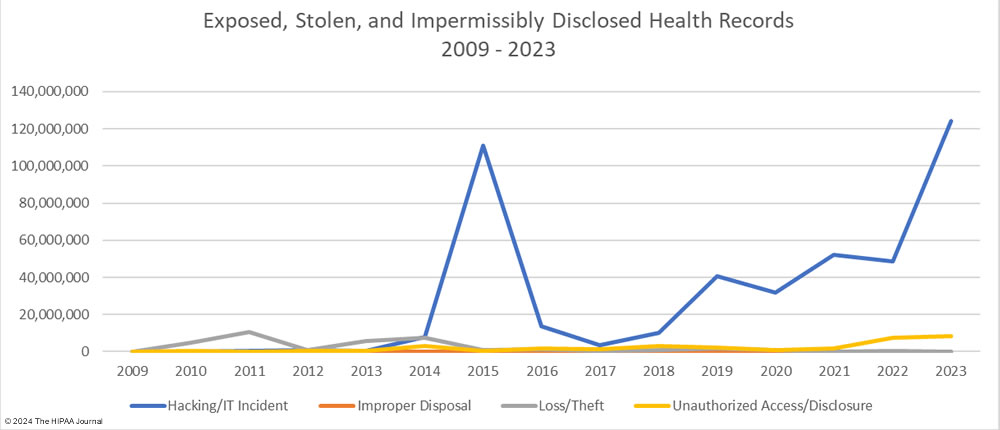In today’s technologically advanced healthcare environment, the digitization of patient records and the growth of telemedicine have significantly improved efficiency and accessibility. However, these innovations have also introduced new vulnerabilities, exposing healthcare providers to numerous cyber threats. Healthcare organizations must not only comply with stringent regulatory requirements but also ensure the protection of patient data as a fundamental ethical practice.
Why Healthcare is a Prime Target for Cyberattacks
The healthcare sector, rich with valuable data but often relying on outdated technology, attracts cybercriminals. Healthcare records, filled with personal and medical information, are highly desirable for profit or exploitation. The challenge is compounded by reliance on legacy systems and a diverse array of devices, increasing the risk of cyberattacks. These factors collectively make the healthcare industry an appealing target for cyber threats.

Challenges in Healthcare Cybersecurity
Modern healthcare systems are complex, with interconnected networks of medical devices, electronic health records, and telecommunication platforms. This complexity provides numerous opportunities for malicious actors to exploit vulnerabilities. Ransomware attacks can halt hospital operations, and data breaches can compromise patient confidentiality. Without robust cybersecurity measures, patient safety is at risk, and public trust can be severely damaged. The constantly evolving cyber threat landscape necessitates proactive measures to strengthen and update defenses continually.
The Consequences of Cyberattacks on Healthcare Institutions
Cyberattacks on the healthcare sector have far-reaching impacts, affecting every aspect of an organization, especially its patients. Ensuring patient safety becomes a significant challenge during cyber disruptions. Compromised systems can delay or distort treatment, endangering patients. For example, an attack on a hospital’s electronic health record system could hinder clinicians’ access to vital patient data, potentially resulting in misdiagnoses or incorrect treatments.
Prioritizing Patient Safety
When healthcare systems face cyber disruptions, the fallout transcends technological boundaries, directly affecting patient care. A cyberattack on a hospital’s electronic health record system can severely hinder clinicians’ access to essential patient information. This barrier can lead to misdiagnoses or incorrect treatments, significantly jeopardizing patient safety. Thus, safeguarding patient data is not just about privacy; it is crucial for ensuring effective and safe patient care.
Highlighting Data Breaches
Cyberattacks often target the vast reserves of sensitive patient data that healthcare institutions maintain. A data breach can reveal personal information, medical histories, and other private details, making patients vulnerable to identity theft and other exploitative schemes. This exposure not only violates personal privacy but also erodes the foundational trust patients place in healthcare providers.
Disrupting Routine to Critical Operations
The modern healthcare ecosystem, with its complex interdependencies, is particularly vulnerable to cyber disruptions. Such incidents can affect everything from daily appointments to essential surgical interventions. The impact extends beyond direct patient care, affecting research, administrative operations, and the supply chain. These disruptions have a domino effect, severely hampering healthcare delivery across the board.
Financial Repercussions
The aftermath of a cyberattack places a heavy financial toll on healthcare institutions. Recovering data and systems, potential fines for regulatory breaches like HIPAA and GDPR, and lawsuits from impacted parties can be astronomical. Additionally, the lasting damage to an institution’s reputation can diminish trust among current and prospective patients, threatening financial stability and future operations.
Upholding Legal and Ethical Standards
Healthcare providers have an ethical and legal duty to protect patient privacy and confidentiality. Regulations such as HIPAA and GDPR outline these responsibilities, but the ethical imperative goes beyond mere compliance. Patients trust healthcare providers with their most sensitive information, expecting it to remain secure. Any breach of this trust damages individual patient-provider relationships and shakes the foundations of the healthcare system.
The Role of Cybersecurity Services
Cybersecurity services and solutions are essential in strengthening the defenses of the healthcare sector, which faces a vast array of cyber threats. These solutions provide comprehensive protection for sensitive data and systems, ensuring the uninterrupted delivery of healthcare services. This helps maintain patient trust and preserves the sector’s reputation. Here are the numerous advantages of cybersecurity services for the healthcare industry:
- Enhanced Protection of Patient Data: Robust protection mechanisms, including encryption, intrusion detection systems, and access control measures, ensure that patient information remains confidential and secure from unauthorized access or breaches.
- Preventing Disruptions in Healthcare Delivery: Advanced threat detection and response systems help identify and mitigate threats before they escalate, ensuring that critical healthcare services remain uninterrupted.
- Maintaining Public Trust and Confidence: Upholding high standards of data privacy and security reinforces public confidence in healthcare services, fostering a trusting patient-provider relationship.
- Cost Savings and Financial Security: Preventing costly data breaches and associated fines, legal fees, and remediation costs ensures long-term financial stability.
- Compliance with Regulatory Requirements: Implementing necessary security measures and protocols helps healthcare organizations meet regulatory compliance requirements, ensuring the ethical treatment of patient data.
- Supporting Innovation and Technological Advancement: Cybersecurity measures enable healthcare providers to adopt new technologies confidently, ensuring that these innovations are secure and that patient data is protected.
Purple Shield Cybersecurity Services
Purple Shield Security offers a comprehensive suite of services to safeguard the IT infrastructure and sensitive data of healthcare providers:
- Conduct Thorough Assessments: In-depth assessments of IT systems and infrastructure, including vulnerability scans and penetration testing, identify weaknesses and provide remediation steps.
- Deploy State-of-the-Art Cybersecurity Solutions: Leveraging advanced cybersecurity technology, Purple Shield implements robust defenses against a wide range of cyber threats.
- Assist with Regulatory Compliance: Navigating complex regulatory requirements, Purple Shield ensures organizations meet necessary obligations, protecting patient privacy and confidentiality.
- Provide Continuous Monitoring and Support: Round-the-clock monitoring detects and responds to emerging cyber threats in real-time, minimizing downtime and addressing security incidents promptly.
- Develop Customized Cybersecurity Strategies: Tailored cybersecurity strategies align with business objectives, ensuring effective, efficient, and sustainable security measures.
- Offer Employee Training Programs: Comprehensive training programs educate healthcare staff on cybersecurity best practices, building a strong security culture from within.
- Conduct Regular Penetration Testing: Regular penetration tests expose security vulnerabilities and provide actionable recommendations for improvement.
- Collaborate with IT Teams: Developing and implementing robust incident response plans ensures a coordinated and effective response to security incidents.
- Provide Encryption Solutions: Implementing encryption algorithms protects sensitive patient data at multiple layers, maintaining confidentiality and integrity even in a cybersecurity breach.
- Offer 24/7 Incident Response Services: Rapid incident response services mitigate the effects of security incidents, enabling swift recovery.
- Utilize Advanced Threat Intelligence: Advanced threat intelligence helps healthcare organizations stay ahead of evolving cyber threats, proactively defending against them.
- Conduct Forensic Investigations: Thorough forensic investigations determine the root cause of cybersecurity incidents and identify compromised systems or data.
- Assist with Technology Adoption: Securely adopting new technologies, Purple Shield addresses security considerations early in the technology adoption lifecycle.
- Offer Consulting Services: Developing comprehensive cybersecurity policies and procedures, Purple Shield provides expert guidance for establishing strong cybersecurity governance.
- Conduct Regular Security Audits: Regular security audits assess the effectiveness of security controls, helping maintain compliance and continuously improve cybersecurity posture.
By partnering with cybersecurity experts like Purple Shield Security, healthcare providers can enhance their cybersecurity posture, ensuring patient trust and security.
Conclusion
As healthcare evolves in an increasingly digitized landscape, the imperative of cybersecurity services in safeguarding patient trust and confidentiality remains paramount. By investing in comprehensive cybersecurity solutions and cultivating a culture of security awareness, healthcare providers can mitigate risks, uphold ethical standards, and preserve the trust upon which the patient-provider relationship is built. Protecting patient data is not just a legal requirement—it is a fundamental aspect of providing quality healthcare services.


